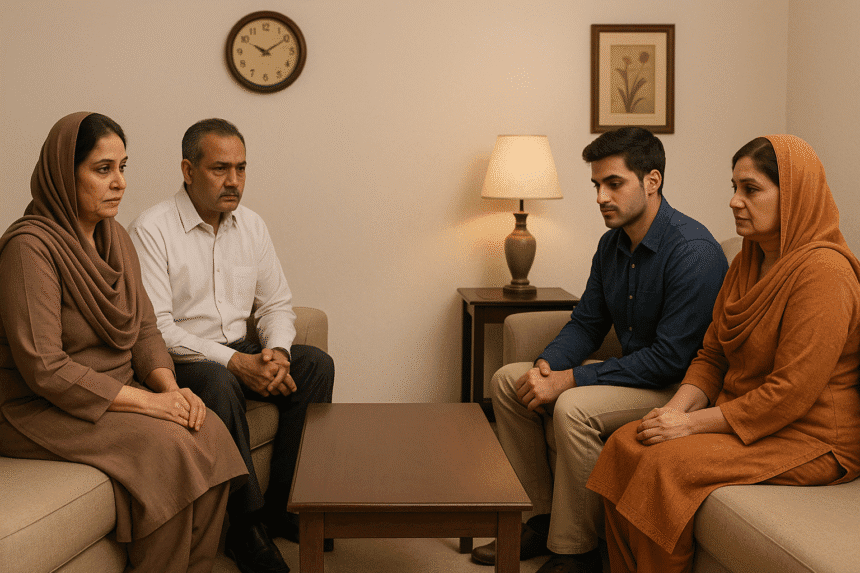– The age-old South Asian tradition of arranged marriage, often referred to as “rishta culture,” is drawing renewed criticism as many question its impact on mental health, family dynamics, and individual autonomy.
While the practice has deep cultural roots and is still prevalent in many Pakistani households, younger generations are increasingly expressing frustration over its often intrusive and judgmental nature. From weight shaming to career choices and skin tone, prospective brides and grooms are frequently evaluated through outdated social criteria that many say reduce individuals to a checklist.
“It feels more like a job interview than a chance to connect with someone,” said a 26-year-old marketing executive based in Lahore. “You’re not being seen as a person, just as a potential daughter-in-law who needs to fit a mold.”
Critics argue that rishta meetings often involve families more than the individuals themselves, turning what should be a personal decision into a group project where societal approval often trumps compatibility or consent.
Adding to the stress is the pressure on women to present themselves as “marriage material” by a certain age. The unspoken deadline, often in the mid-twenties, leaves many feeling inadequate or “left behind” if a proposal does not materialize within the socially accepted timeline.
Mental health professionals warn that the emotional toll of repeated rejections, unsolicited judgments, and family interference can lead to anxiety, low self-esteem, and in some cases, depression.
“People are forced to smile through scrutiny,” one psychologist noted. “It’s a constant cycle of proving your worth—based not on who you are, but what you can offer in terms of domesticity, beauty, and obedience.”
However, the conversation is beginning to shift. With more people speaking out on social media and through digital platforms, there’s a growing call for cultural reform—urging families to adopt a more modern, respectful, and inclusive approach to matchmaking.
As societal values evolve, many believe it’s time for rishta culture to evolve with them—prioritizing mutual respect, emotional compatibility, and personal choice over outdated traditions.














